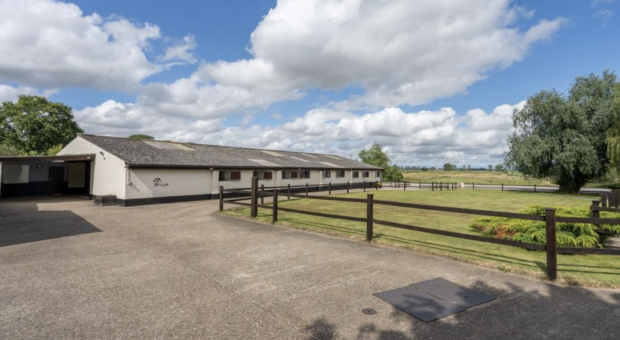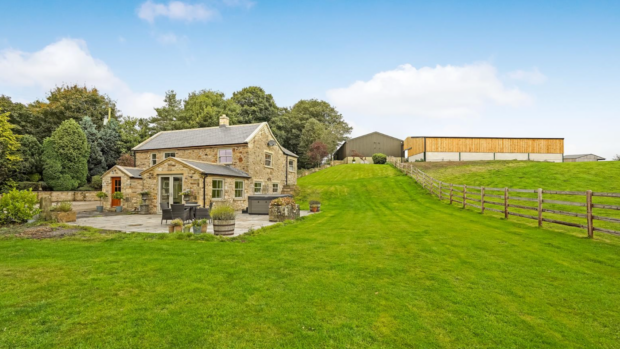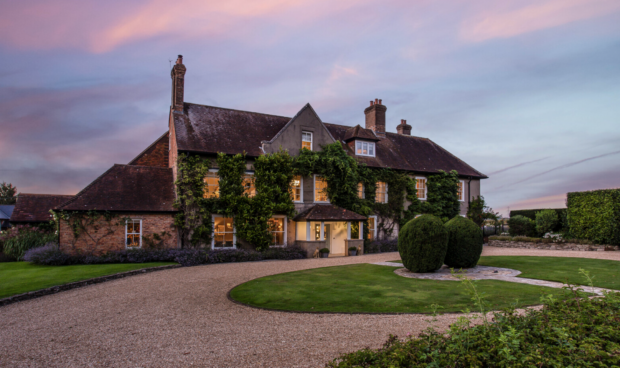The south-west of England is the land of opportunity for equestrian buyers of all ages, as Michael Dukes of estate agent Greenslade Taylor Hunt is quick to point out.
“There is a good network of Pony Club branches, and at the national championships there is strong representation from this region,” he says. “This is a strong draw to the area for families.
“There are also a host of hunts, offering both vale and hill riding across some of the most untouched and stunning scenery in the UK and a history that’s second to none. Riding clubs and an excellent programme of one-day competitions give a very wide variety throughout the year.”
Beyond these obvious attractions, land here is marginally more available than in the south-east, communications are good across much of the area and a deeply shared equestrian culture ensures planning offices are reasonably sympathetic to equine developments.
“Because planners see the benefit of equestrian activities in the area — to business and as a diversification opportunity — they are a bit more open-minded,” says Guy Sherratt of the eponymous estate agent.
Much of the West Country appeals to both professional and amateur riders. However, the geography of equestrian purchase is well defined, as buyers cluster in areas that mirror their riding interests.
The region’s westernmost reaches, such as Cornwall and the least accessible areas of Devon, tend to be more popular with private buyers looking for a country hideaway. At the opposite end of the region, the market is in the hands of commuting families and a growing population of professionals.
“Understandably, most professional buyers need to be slightly more centrally based as they have to travel often,” says Dukes. “So most will look to Somerset, Gloucestershire and Wiltshire.”
Somerset and eastern Devon are particularly popular with racing trainers.
“Depending on the type of training they do, they will need to be more or less close to the motorways,” says Sherratt. “National hunt trainers need to be in the eastern part of the area to have good access to racecourses. For point-to-pointing it is not quite as critical.”
Exmoor is the preserve of endurance riders and happy hackers, who simply enjoy an outing in the beauty of the moors.
“The villages of Exford, Winsford, Withypool and Dulverton are hotspots where riding is the pull for homeowners. It also provides a large part of the economy,” says Martin Lamb of Savills.
And, of course, this is prime hunting country. But buyers hoping to snap up a hunting box at bargain prices following the ban will be in for a disappointment. This is partly because hunts have found ways to continue operating within the law, and “the fields are as big as ever,” as Lamb points out.
“I think the hunt ban has had an effect on some properties and businesses, but not as much as we thought it would have,” says Sherratt. “There are still people looking for smaller properties across Exmoor, who are not affected by the situation at all.”
Property prices across the West Country have steadily gone up throughout the last six years. The gap with the south-east has also narrowed. Six years ago, an average detached house in the West Country was more than 30% cheaper than its equivalent in the south-east. Now it costs only 20% less.
“The south-west is still much better value than the south-east, but there isn’t so much of a difference any more,” says Sherratt.
Buyers are showing a marked preference for traditional farmhouses with five to 10 acres — or more, if they are professionals — plus access to the motorway network and good outriding. The higher a home scores against this ideal picture, the higher the price it will command.
Within the region, there are price differentials, as Dukes explains: “Houses in the more outlying areas further from the motorways and larger towns are a bit cheaper, whereas prices can be higher in Exmoor, Dartmoor and the Quantock Hills, given the scenery and hunting opportunities.”
A couple of hotspots are also emerging. Sherratt points out that north Devon has “come up hugely” in the last few years, whereas William Grant of Fox Grant is seeing plenty of interest in the border between Somerset and Dorset — especially around Wincanton and Gillingham.
But the market in the south-west is unlikely to ever crash. “We have space,” says Lamb. “We also have darkness and silence, which are increasingly difficult to find. All this, together with our beautiful coastline, the moors and unspoilt countryside, and a general shortage of property, give us some insulation from downturns in the market.”
SUBSCRIBE TO HORSE & HOUND AND SAVE Enjoy all the latest equestrian news and competition reports delivered straight to your door every week. To subscribe for just £1.43 a copy click here >>
|




